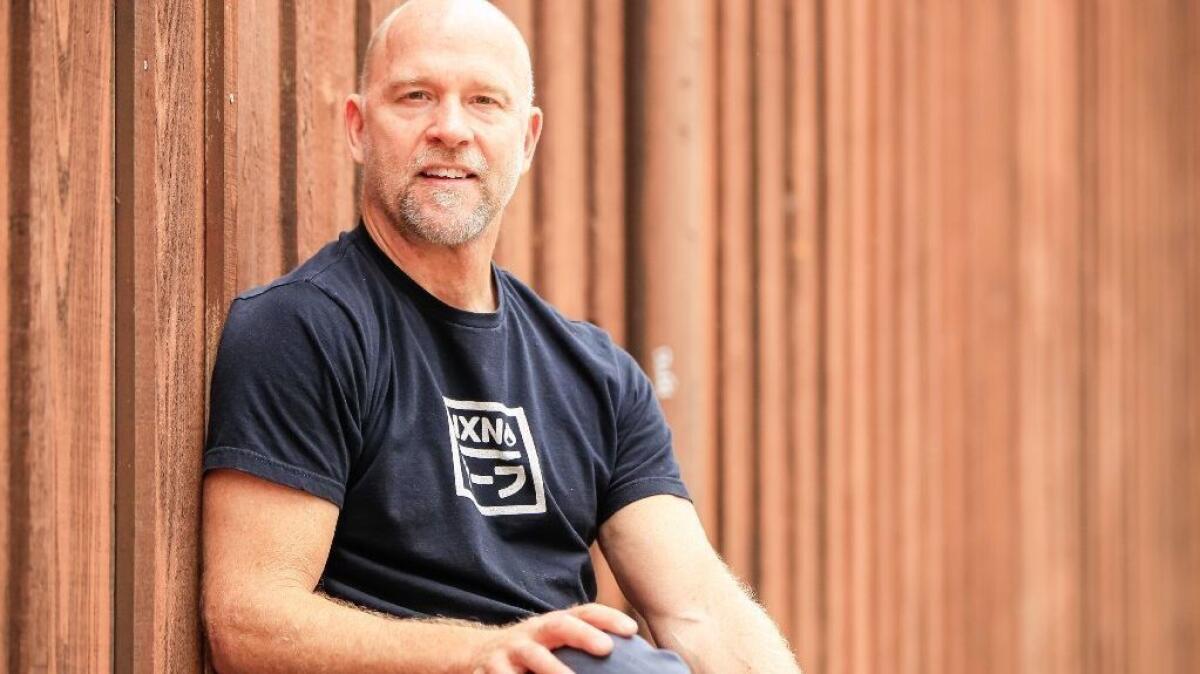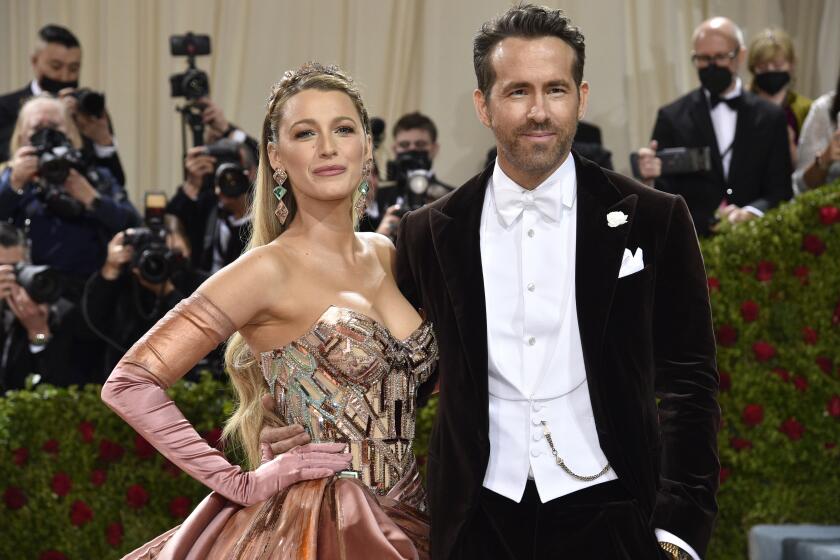Nixon CEO on what makes teams and companies tick

Scott Kerslake has held the top post at Nixon, the Encinitas-based maker of custom-made watches, for less than a year but he’s clear about one thing: You need good teamwork to make your company successful.
As CEO, Kerslake is in charge of the 20-year-old privately held company, which also makes wallets, backpacks and clothing, catering to the youth market. But he feels strongly about mentoring at Nixon, which has about 200 employees globally, many of whom are roughly half his age.
“I’m the oldest guy here,” said Kerslake, who is 53. “I’m the grandpa compared to everyone. I get to work with really smart, fun people who are doing amazing things. My job is to mentor them.”
Kerslake, who was previously the CEO of prAna and founder of Athleta, both athletic clothing companies, has a history of fostering a positive culture and building teams. Those two are among the things that will help expand Nixon, he said.
The CEO recently chatted about why it’s important to let employees take risks and why some teams fail.
This interview was edited and condensed.
Q. How do you run Nixon?
A. I’m a fairly casual person. I wear T-shirts, jeans and tennis shoes. I will hang out with people here at lunch, take the occasional surf before work or during lunch.
(Employees) wear flip flops, sometimes no shoes. They surf or skate at lunch or take a break to play Ping-Pong. They spend 70 percent of their time at work. It can’t be a slog.
But a casual environment doesn’t mean low performance. It should (still) mean high performance. (It’s about) modeling behavior. I know when to be serious and direct but I try not to lose my sense of humor. I’m serious about the company mission. But I don’t think being punitive as a CEO works. Be clear about your goals and hold people accountable. That works.
Q. As Nixon CEO, what are the things you’ve done to build great teams?
A. It takes time to build great teams. I’ve been here nine months. I think we are there, but you would have to ask the employees. Dramatically improve communications: up, down and sideways. Part of that is helping people understand where we are going, what the big picture is, and how their roles fit into the big picture. It sounds fundamental, but it’s really important.
You need great leaders. Give people room to run. Give people permission to take risks and try new things. That’s a big thing. Nixon is about innovation and progression. For us to be successful, we have to have a creative environment.
Q. Even if risks result in failures?
A. Absolutely. Hey, failure is OK as long as you take risks. And just giving people the ability to hang it out there: the good, the bad and the ugly. It’s OK. It builds trust.
Q. What’s the one thing you can do as a CEO to hurt team building?
A. You can kill team building by micromanaging or being too directive, telling people what the answers are as opposed to asking questions. My role is to ask questions, not necessarily to always supply the answers.
Q. As CEO, how can you inadvertently create a negative company culture?
A. By not listening and not paying attention to overall morale. You can contribute to a negative culture by being dismissive, blaming people or dehumanizing them. I’m a unique CEO. Human resources reports to me. I try to keep a close pulse on how people are doing.
There’s a benefit of being approachable. I have my door open for anyone at any level to come in and talk to me. If someone has an issue, people will come to me. That’s a pretty cool thing. It’s direct feedback, which I really value. It’s not always easy to hear but my job is support the organization. My job is to be servant leader not a dictator. I’m not sure people function well in dictatorship.
Q. Are your strategies for building teams and positive cultures the same or different at the companies you’ve led?
A. Whether it’s Athleta that I started or prAna or Nixon, all companies have different cultures. The important piece to making company culture successful is the basic sense that people care about each other and people in leadership positions care about people. Hey, someone cares about me here. It’s a basic human need and a lot of companies fail at that.
You have to have very clear values of what a company stands for. You have to nurture this stuff. When you have clear values, you attract people who share those values.
One of the roles at Nixon is to be a much stronger member of the community. (We) want (our) business to be a catalyst for change. Improving life in our community, giving back, being aware of our impact and trying to minimize our impact. Being a force for good is really important for us at Nixon.
If employees are doing things that are really adding to community, it’s really important to acknowledge that. Whether it’s beach cleaning or being a junior lifeguard, you acknowledge that in a public forum (such as social media or online). I would also acknowledge that directly with that person. And I would tell the story to (customers to) show who the people who work on this stuff every day are like and what they value. I want the people buying Nixon products to be emotionally connected to the company. We want them to have a deeper relationship (with Nixon). So a customer who values clean beaches will say: “Wow, I like that because I value that too.”
Scott Kerslake
Title: Nixon CEO
Other gig: faculty member at University of Oregon’s Graduate School of Business where he teaches advanced strategy and leadership
Previous jobs: CEO of active clothing company prAna, now owned by Columbia Sportswear; and founder of athletic women’s clothing brand Athleta, now owned by Gap Inc.
Sign up for the Pacific Insider newsletter
You may occasionally receive promotional content from the Pacific San Diego.

